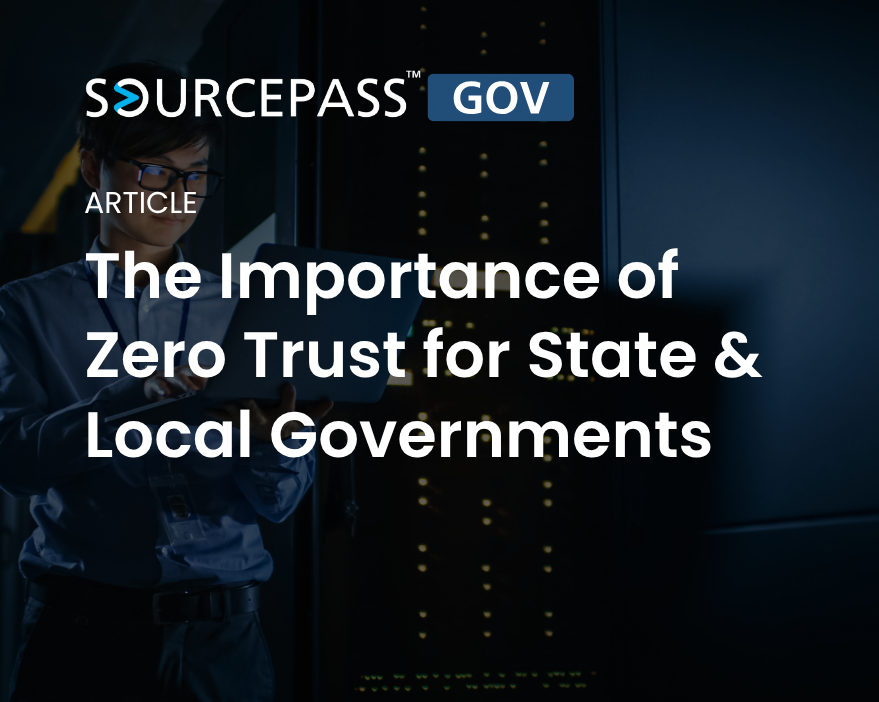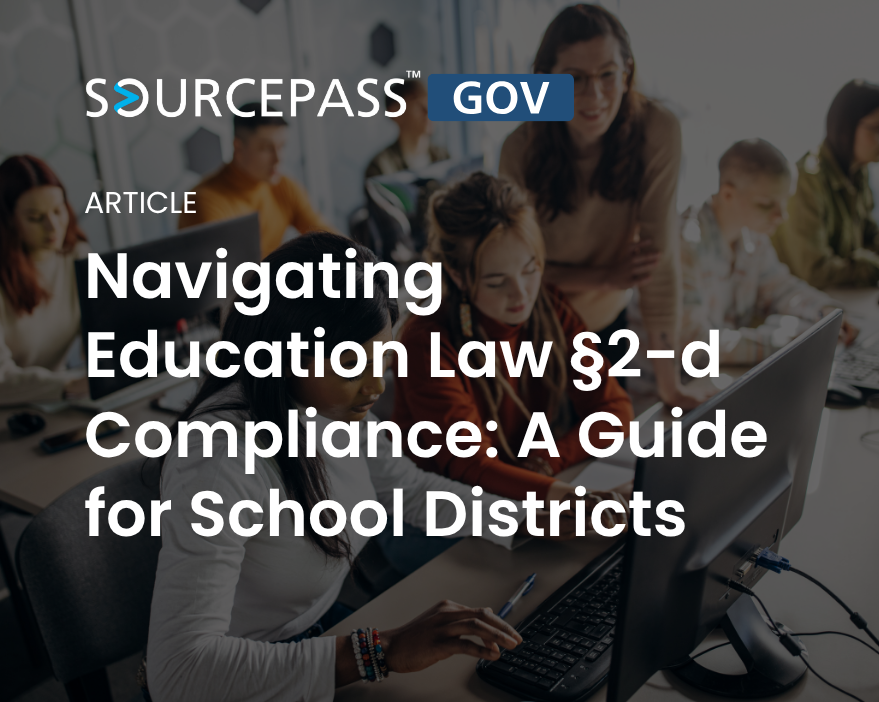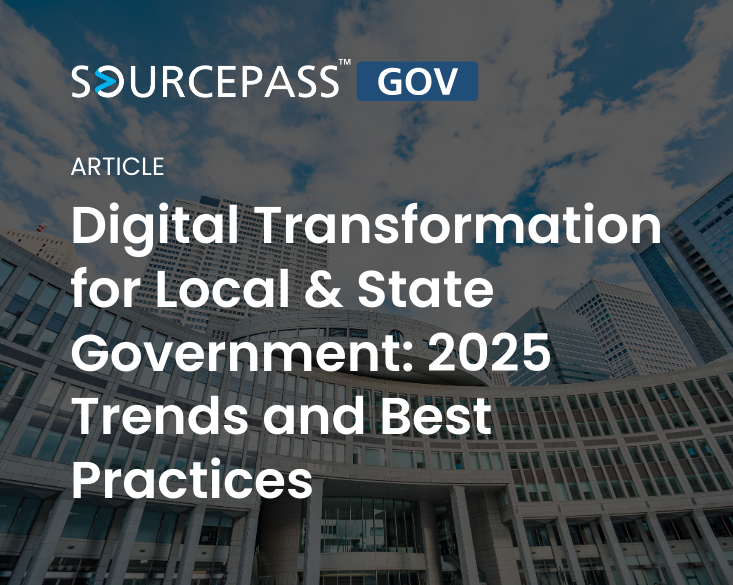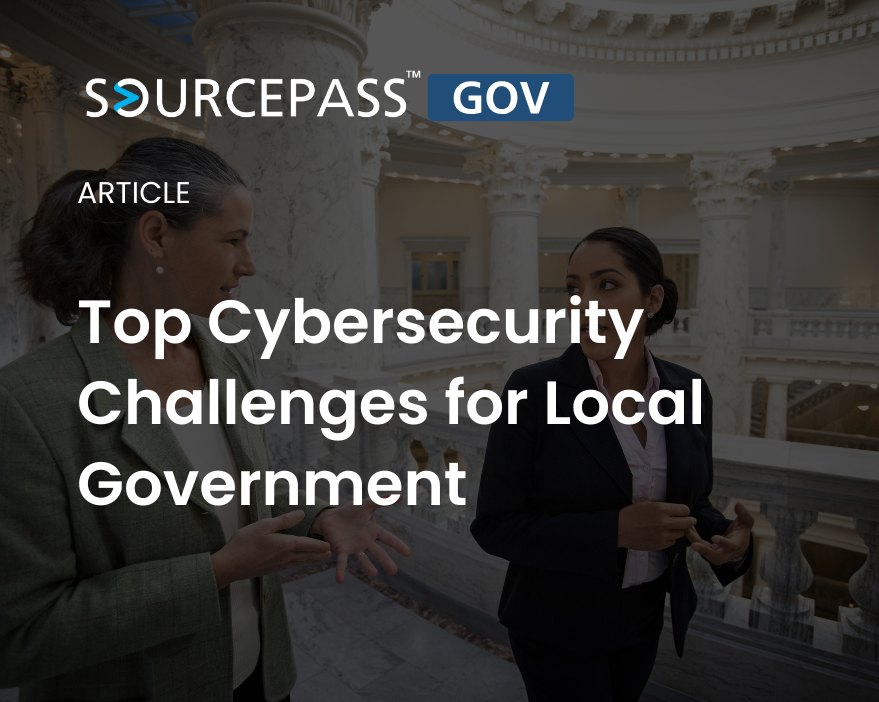1 min read
AI for the Public Sector | Sourcepass GOV AI Trainings
Artificial Intelligence (AI) is transforming how public sector organizations operate, from budgeting and compliance to citizen engagement. In our...
2 min read
Alex Davis : Jul 29, 2025 11:38:50 AM

Ransomware attacks are a significant threat to state and local governments. These attacks can cripple essential services, compromise sensitive data, and lead to substantial financial losses. Understanding the nature of ransomware and implementing robust security measures, such as a Zero Trust architecture, is crucial for protecting government infrastructure.
In this blog post, we explore what ransomware attacks are, why Zero Trust is essential, and what state and local governments can do to safeguard their systems.
Ransomware is a type of malicious software designed to block access to a computer system or data until a ransom is paid. Attackers typically gain access to systems through phishing emails, malicious downloads, or exploiting vulnerabilities in software. Once inside, the ransomware encrypts files, rendering them inaccessible to the user. The attackers then demand payment, often in cryptocurrency, in exchange for the decryption key.
State and local governments are particularly vulnerable to ransomware attacks due to the critical nature of the services they provide. These attacks can disrupt public safety operations, healthcare services, and other essential functions. Additionally, the sensitive data held by government agencies, such as personal information of citizens, makes them attractive targets for cybercriminals.
Zero Trust is a security model that operates on the principle of "never trust, always verify." Unlike traditional security models that assume everything inside the network is safe, Zero Trust requires continuous verification of every user and device attempting to access resources. This approach minimizes the risk of unauthorized access and lateral movement within the network, making it harder for attackers to spread ransomware.
Sourcepass GOV specializes in providing tailored cybersecurity solutions for state and local governments. Our comprehensive approach includes:
By partnering with Sourcepass GOV, state and local governments can enhance their cybersecurity posture and protect against the growing threat of ransomware attacks.
Sourcepass GOV can help you implement a Zero Trust architecture and provide best practices for security to help ensure the continuity of essential services and the safety of sensitive data. Speak with an expert today.
.png)
1 min read
Artificial Intelligence (AI) is transforming how public sector organizations operate, from budgeting and compliance to citizen engagement. In our...

3 min read
More than halfway through 2025, state Chief Information Officers (CIOs) continue to navigate a dynamic landscape of technological advancements and...

2 min read
Protecting student data is a top priority for school districts. New York's Education Law §2-d, enacted during the 2014-2015 fiscal year, sets forth...

More than halfway through 2025, state Chief Information Officers (CIOs) continue to navigate a dynamic landscape of technological advancements and...

Digital transformation is revolutionizing how local governments operate, deliver services, and engage with citizens.

In 2025, local governments across the United States are dealing with new and emerging cyber threats. As technology evolves, so do the tactics of...